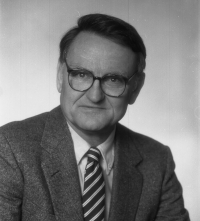Q: Why was Robert Lynn so significant to theological education?
A: To understand that, you have to understand one of Lynn’s basic insights, and that is that governance and finances are crucial to a seminary’s institutional life and development. He shared this insight through grants as vice president of Lilly Endowment Inc., with visits to seminary boards of trustees, and with the provision of trustee training. It was a passion of his to get boards involved with sustaining the vision and vitality of theological schools.
The same obsession can be seen in his work on congregational finances. Lynn was convinced that one of the hidden levers in American religious history was how religious institutions are financed. Because in the United States, without voluntary money, churches and seminaries are not viable.
He was also fascinated with the question of how to develop leadership. Lynn was convinced that all kinds of institutions — but particularly theological schools, churches, and other religious organizations — were dependent on the high quality of voluntary leadership they could enlist. He felt that this capacity of institutions to draw highly talented people was uniquely American, uniquely important, and one of the pillars on which the future of seminaries might depend. So he invested considerable time in that, and he invested considerable resources from Lilly.
Lynn knew that seminary leadership depends on reliable sources of information. That was one reason for his interest in In Trust and for his support for the research on theological education being done at Auburn Seminary. It really all tied together.
Trusteeship is where money and leadership come together. Trustees have fiduciary responsibility for institutions. For Lynn, that fiduciary responsibility meant that they also had moral accountability for institutions.
Lynn was fascinated with institutions like Fuller Theological Seminary and Gordon-Conwell Theological Seminary, both of which he saw as having real potential. They were voices from a conservative perspective, but they were able to project that conservative perspective into a future. So, you might say that whether he was working with liberal boards or conservative ones, what he wanted was for them to realize the moral possibilities in their present situation. That’s quite a transformative view of things, as Richard Niebuhr would say. Not a perfectionist view.
Lynn didn’t have a model of what a seminary board ought to be. He didn’t think the board at Fuller should be the same as the board at Union Theological Seminary or the same as a board of a university divinity school. But he thought they should be responsible in their own context for the institution and its moral future, not simply its continuation.
| REQUIESCAT IN PACE |
|
 Robert Wood Lynn, 1925–2018 Robert Wood Lynn, 1925–2018
Retired Senior Vice President for Religion
Lilly Endowment Inc.
Born in Wyoming to homesteading Presbyterian parents, Robert Lynn graduated from Princeton University (B.A., 1948), Yale Divinity School (B.D., 1952), and Union Theological Seminary (Th.D., 1959). He joined the Union faculty in 1959, and in 1960 he received a concurrent appointment as dean of Auburn Theological Seminary, serving until 1974.
Lynn was recruited to oversee Lilly Endowment Inc.’s religion grantmaking in 1974, and for the next 15 years he approved 1,895 grants totaling $100 million. Lynn was widely credited with funding projects that would contribute to a body of knowledge about American religious life, and with convening grantees and other leaders to learn from one another. He was instrumental in the founding of In Trust magazine in 1988 and 1989.
Lynn is survived by his wife of 66 years, Katharine Wuerth Lynn, two daughters, and numerous grandchildren and great-grandchildren. More information: www.intrust.org/RobertLynn
|